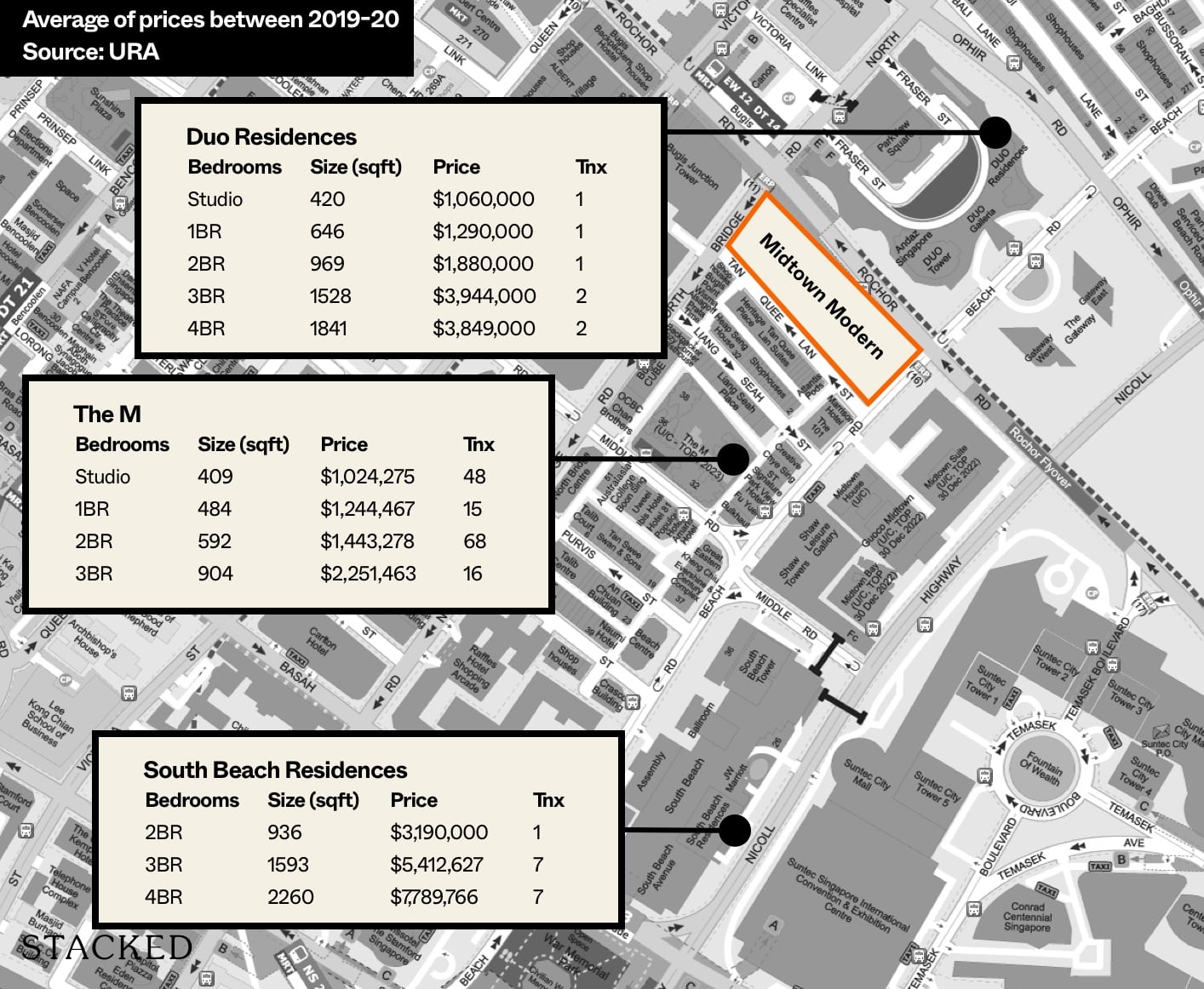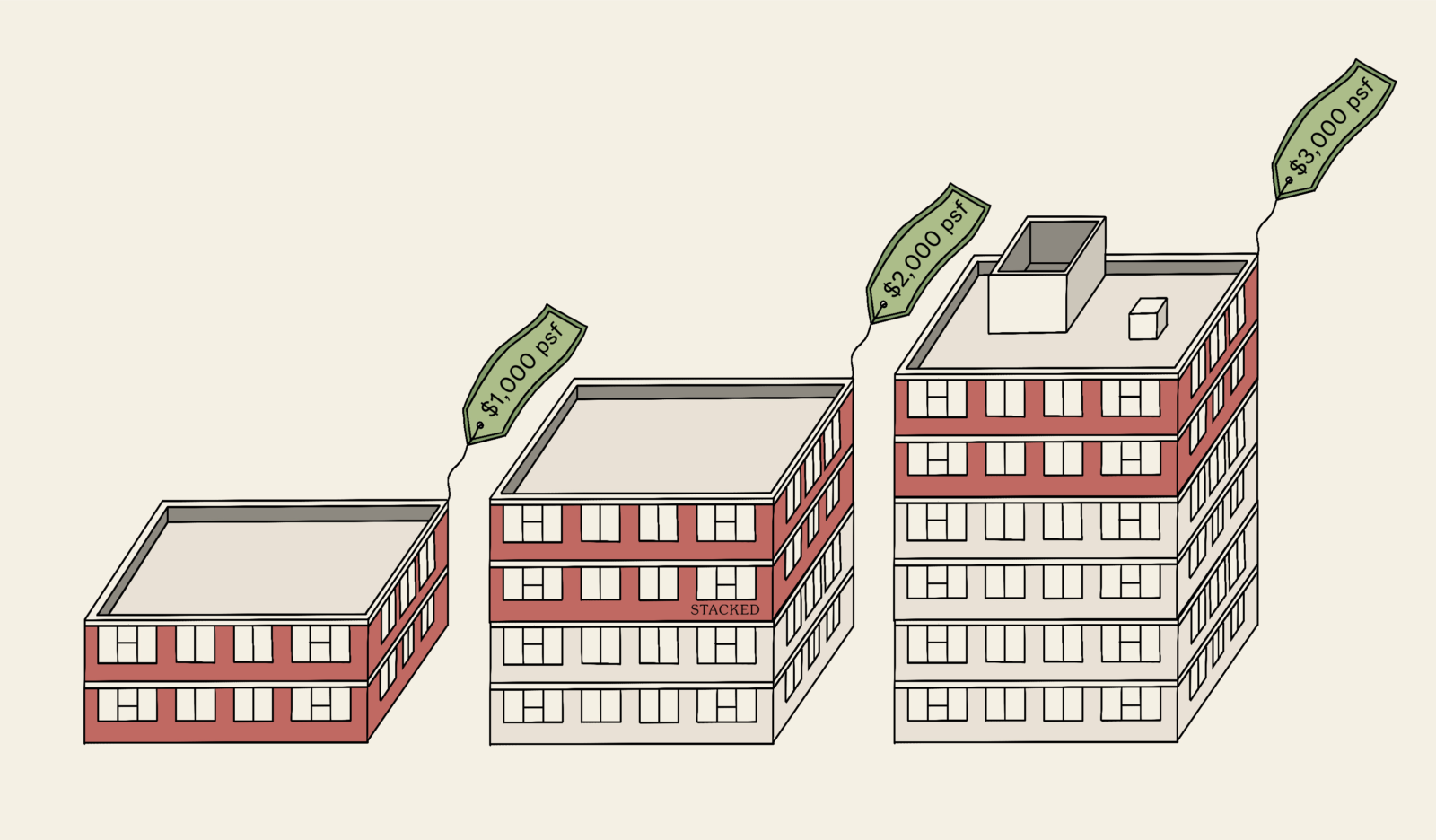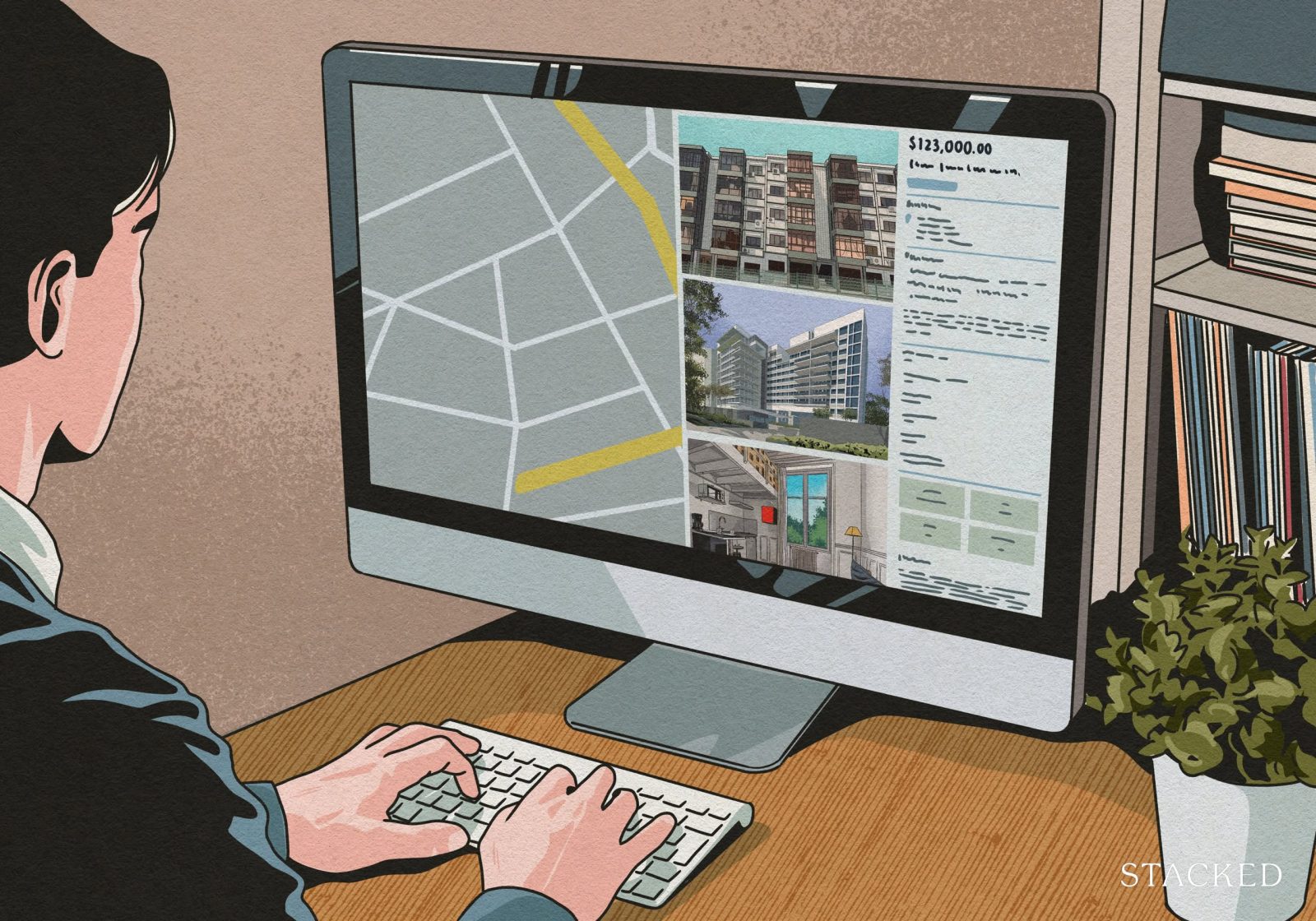What DIY Property Buyers In Singapore Might Miss Out On (And Why It Matters)
April 21, 2025

Some home buyers have the idea that, if they skip the buyer’s agent, they’ll save money or have an easier time: this is because HDB flat buyers are expected to pay their own agent, whilst in private property, sellers’ agents sometimes refuse to co-broke (i.e., they don’t want to split their commission with the buyer’s agents, so calls and offers go unheard.) Despite these quirks, however, the benefits of a buyer’s agent usually outweigh the drawbacks. Here’s what DIY buyers might miss out on:
Many readers write in because they're unsure what to do next, and don't know who to trust.
If this sounds familiar, we offer structured 1-to-1 consultations where we walk through your finances, goals, and market options objectively.
No obligation. Just clarity.
Learn more here.
1. Buyer’s agents are often aware of surrounding transactions that might affect your purchase

Here’s a recent example we saw on the ground: the buyer was considering a 10th-floor unit for $1.9 million, in an RCR area condo. However, the buyer put off making an offer, as it was only the first unit they’d viewed – this was despite the unit ticking all the boxes for their requirement.
Mere hours after the viewing, the buyer’s agent was told by another realtor, selling an 11th-floor unit in the same project, that a deal for $2.1 million had just been closed. This unit was the same size and layout, but only one floor above. The buyer’s agent realised that, when this transaction became known, the sellers of the 10th-floor unit would likely push for a higher price.
This led to the agent informing his buyers, who quickly put in an offer that same day; and they were able to buy the unit before the price rose.
This is something that arises from realtors speaking to each other and having their own network. The DIY buyer has no access to this, and is at greater risk of putting in offers too early or too late.
The inverse is also true: a buyer’s agent may also know when a nearby unit sold for less
If a unit in the same stack or project sells for less, a buyer’s agent is likely to get wind of it as well. They can prompt you to try a lower bid, or they may have a clearer understanding of why the price dipped (e.g., knowing whether it’s immaterial, such as a seller in a rush, or whether it reflects greater issues like a future development blocking the view).
2. Unless you want to spend all day in a lobby, a buyer’s agent is often the best scout
A good way to determine if you should put in an offer, is when a property is getting a lot of attention. But how do you tell that? The secret isn’t some super-app, or access to special data. It’s simple labour:
Some experienced buyer’s agents really do hang around a lobby (or the general ground floor) all day, observing how many viewing parties go to your desired unit. In general, seeing at least five to six groups viewing a property means demand is high, and it’s a good sign that you should put in an offer; or at least expect a potential bidding war.
You could try and do this yourself; but we’re certain few people have the time or inclination to lurk in a lobby all day and pay attention to this.
As an aside, agents who are eager to sell also tend to share more about the viewings; but that sharing may be done on agent networks, so again the DIY buyer is out of the loop.
More from Stacked
How To Avoid A Renovation Nightmare: 8 Must Know Tips To Find The Right Interior Designer
Navigating the world of home renovation can feel like embarking on a treacherous expedition if you're new to it. Stories…
3. Buyer’s agents may know about recent bank valuations, in nearby units

Bank valuations are needed for financing (as the Loan To Value limit is usually 75 per cent of the price or valuation, whichever is higher). This can result in some buyers shopping around for the bank that will accept the highest valuation on a property, as it means they can get more leverage.
The bad news for buyers is that, sometimes, they’re able to get a very high valuation on a unit near your intended purchase; and that information may get out to the sellers. If they were selling for $1.8 million, but they find out the neighbouring unit got a valuation for $1.85 million, you can imagine what’s likely to happen next.
Because buyer’s agents are in tune with this, there’s a chance the news gets to them first. This becomes another case where they warn you to hurry and close a deal, before the sellers catch wind and start asking for more.
4. Buyer’s agents are more likely to know when a listing is old, or if there are issues with the wider project
The most obvious example of this is knowing when a listing is old. Depending on the portal, there are ways to obscure this; if a seller changes their agent, the new agent may have to quickly clear older listings. In this way, even a property that’s been on the market for a year could appear fresh.

This is less likely to fool a buyer’s agent, though. Most of them are monitoring prices and listings every day, so they can quickly identify when an address has been listed for a long time; they’ll know even if efforts are made to change the description and photographs.
Buyer’s agents also tend to be clued in on what’s happening in a project. In one example we witnessed, a buyer’s agent was able to warn her client of serious problems between a condo’s MCST and the original developer (there were serious plumbing issues in the project, with problems occurring within the first year of completion).
Had her client gone ahead with the purchase, there could have been complications, as some banks paused financing for the project until the legal issues were resolved.
These problems aren’t always visible to a DIY buyer: the majority of a condo’s owners are disinclined to highlight them online or on other media, as they don’t want to end up destroying their own property value. That being said, we wouldn’t advise you to find just any agent either. It’s best to engage a buyer’s agent who not only has experience, but has actually transacted in the relevant area or project. Note that today, you can check where an agent has transacted on the CEA website, by using their license number.
At Stacked, we like to look beyond the headlines and surface-level numbers, and focus on how things play out in the real world.
If you’d like to discuss how this applies to your own circumstances, you can reach out for a one-to-one consultation here.
And if you simply have a question or want to share a thought, feel free to write to us at stories@stackedhomes.com — we read every message.
Frequently asked questions
What are the advantages of using a buyer’s agent when purchasing property in Singapore?
How can a buyer’s agent help me avoid overpaying for a property?
Why is it difficult for DIY buyers to gauge property demand or viewings?
In what ways can a buyer’s agent be aware of issues with a property or development project?
How does a buyer’s agent’s knowledge of bank valuations benefit property buyers?
Ryan J. Ong
A seasoned content strategist with over 17 years in the real estate and financial journalism sectors, Ryan has built a reputation for transforming complex industry jargon into accessible knowledge. With a track record of writing and editing for leading financial platforms and publications, Ryan's expertise has been recognised across various media outlets. His role as a former content editor for 99.co and a co-host for CNA 938's Open House programme underscores his commitment to providing valuable insights into the property market.Need help with a property decision?
Speak to our team →Read next from Property Market Commentary

Property Market Commentary How I’d Invest $12 Million On Property If I Won The 2026 Toto Hongbao Draw

Property Market Commentary We Review 7 Of The June 2026 BTO Launch Sites – Which Is The Best Option For You?

Property Market Commentary Why Some Old HDB Flats Hold Value Longer Than Others

Property Market Commentary We Analysed HDB Price Growth — Here’s When Lease Decay Actually Hits (By Estate)
Latest Posts

Singapore Property News Why Some Singaporean Parents Are Considering Selling Their Flats — For Their Children’s Sake

Pro River Modern Starts From $1.548M For A Two-Bedder — How Its Pricing Compares In River Valley

New Launch Condo Reviews River Modern Condo Review: A River-facing New Launch with Direct Access to Great World MRT Station




































1 Comments
I disagree with this article. I have seen some buyers’ agents complicate the sale by negotiating their commission, and if the sellers don’t agree, they scuttle the sale by telling all kinds of story to their clients (buyers). Did you come across these kind of agents?